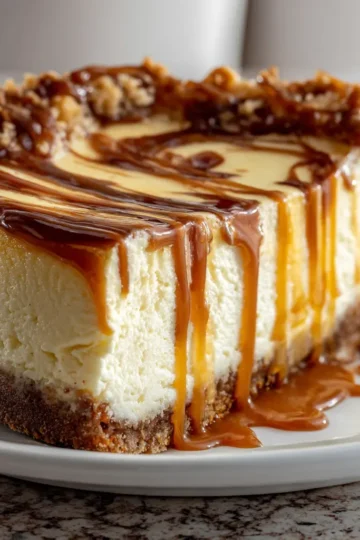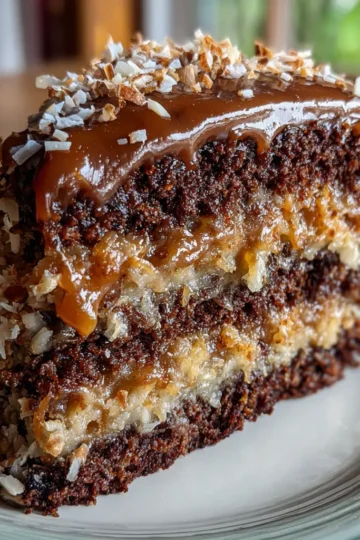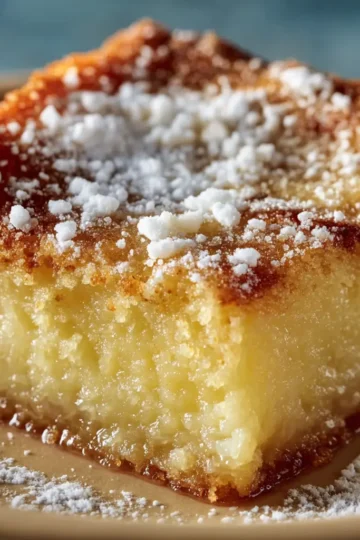Introduction to Homemade Carrot Cake
Carrot cake is not just another dessert; it’s a slice of nostalgia and comfort, perfect for our busy lives as young professionals. Imagine returning home after a hectic day, craving something sweet yet wholesome. This is where homemade carrot cake becomes your go-to. The beautiful blend of spices, soft cake texture, and the subtle hint of carrots make it a delightful treat that satisfies your sweet tooth while feeling somewhat virtuous.
Why Carrot Cake is the Perfect Treat for Young Professionals
So why is carrot cake particularly suited for us? First, it strikes an ideal balance between indulgence and health. According to the USDA, carrots are packed with vitamins, especially vitamin A, and fiber. You're not just treating yourself; you're giving your body a little love too! Plus, it’s an excellent way to sneak extra nutrients into your diet without feeling like you're sacrificing taste.
-
Flexibility: Whether you enjoy it as a cozy snack during a Netflix binge or serve it at your next work gathering, carrot cake fits* every occasion*. You can easily whip up a batch on a Sunday afternoon and enjoy it throughout the week—perfect for meal prep enthusiasts and go-getters alike.
-
Customizable Recipes: The beauty of carrot cake lies in its adaptability. Want to make it vegan? Swap in some applesauce for eggs! Craving a little crunch? Toss in some walnuts or pecans. Feeling adventurous? How about adding a hint of pineapple for an extra tropical flair! You can explore your taste preferences and dietary needs while crafting the perfect cake for yourself and friends.
Not only is carrot cake delightful to eat, but it also doubles as a conversation starter. Picture this: your friends take a bite and the simple yet unique flavor profile sparks discussions about favorite desserts or childhood memories. If you're interested in more about dessert psychology, you might want to check out this insightful piece from Psychology Today.
In essence, homemade carrot cake is more than just a dessert—it's an experience. Dive into this recipe, and you’ll soon realize that crafting your own carrot cake can be both rewarding and utterly enjoyable.
Ingredients for Homemade Carrot Cake
When it comes to whipping up a delicious carrot cake, having the right ingredients is essential for that perfect balance of flavors and textures. Let’s dive into the must-haves!
Essential Ingredients for the Cake
To bake your scrumptious carrot cake, gather these ingredients:
- All-purpose flour: The foundation of your cake.
- Granulated sugar: For that delightful sweetness.
- Brown sugar: Adds moisture and a hint of caramel flavor.
- Baking powder and baking soda: For that perfect rise.
- Ground cinnamon and nutmeg: These spices give your cake its warm, comforting essence.
- Salt: Just a pinch enhances all the flavors.
- Vegetable oil: Keeps your cake moist and tender.
- Eggs: Bind the ingredients together and give structure.
- Freshly grated carrots: The star of the show, bringing sweetness and texture.
- Chopped walnuts or pecans (optional): For that delightful crunch.
For a comprehensive list of cakes, feel free to check out the Joy of Baking.
Ingredients for the Cream Cheese Frosting
No carrot cake is complete without a rich cream cheese frosting. Here’s what you’ll need:
- Cream cheese: The base of your frosting, providing a smooth, creamy texture.
- Unsalted butter: To help create that luscious mouthfeel.
- Powdered sugar: Sweetens the frosting to perfection.
- Vanilla extract: Adds a hint of flavor that complements the cake beautifully.
With these ingredients, you’re well on your way to creating a carrot cake that’s not only visually stunning but delectable too! Ready to bake? Let’s get started!
Preparing Homemade Carrot Cake
When it comes to baking, few desserts can compete with the wholesome goodness of a carrot cake. Whether you’re sharing it at a family gathering, celebrating a birthday, or just indulging yourself, a homemade carrot cake is a definite crowd-pleaser. Let’s dive into the essentials of making your perfect carrot cake.
Preheat Your Oven and Prepare the Tin
Before you do anything else, start by preheating your oven to 350°F (175°C). It’s essential to have your oven ready to ensure consistent baking. While the oven heats up, grab your cake pans—two 9-inch round pans work best. Grease them with butter or use parchment paper for easy removal after baking. A little tip: dust the greased pans with flour to create an extra non-stick surface.
Mix the Wet Ingredients
In a large mixing bowl, combine your wet ingredients. You'll need:
- 1 cup of vegetable oil or melted coconut oil
- 4 large eggs
- 2 cups of granulated sugar
- 2 teaspoons of vanilla extract
Start by whisking the oil and sugar together until it’s smooth and creamy. Then, add the eggs one at a time, making sure they are well incorporated after each addition. Lastly, stir in the vanilla extract. This mixture is the base that keeps your carrot cake moist and delicious.
Combine the Dry Ingredients
In another bowl, mix the dry ingredients. You’ll need:
- 2 cups of all-purpose flour
- 2 teaspoons of baking powder
- 1 teaspoon of baking soda
- 1 teaspoon of salt
- 1 teaspoon of ground cinnamon
- ½ teaspoon of ground nutmeg
Sift all these together to avoid clumps. The aroma of the spices will evoke the cozy vibes associated with homemade desserts. If you're interested in the health benefits of various spices, check out this comprehensive guide on healthy baking habits from Healthline.
Add the Grated Carrots and Optional Add-Ins
Now, for the star of the show—your shredded carrots! You will need about 3 cups of finely grated carrots, which typically comes from around 6-7 medium carrots. These give your cake its signature flavor and moistness.
This is also the time to get creative. You can add:
- ½ cup of chopped walnuts or pecans
- ½ cup of raisins or pineapple
Fold these into your batter gently; you don’t want to overmix. The goal is a harmonious blend of flavors that will tantalize your taste buds.
Bake the Cake to Perfection
Pour your batter evenly into the prepared pans. Bake in your preheated oven for about 25-30 minutes, or until a toothpick inserted in the center comes out clean. Keep an eye on it, as baking times can vary based on your oven. A carrot cake should be golden brown and spring back when lightly pressed.
Cool and Prepare the Frosting
Once baked, let your cakes cool in the pans for about 10 minutes, then transfer them to a wire rack to cool completely. While they cool, you can prepare your frosting. A classic cream cheese frosting pairs wonderfully with carrot cake, and all you need is:
- 8 oz of cream cheese, softened
- ½ cup of butter, softened
- 4 cups of powdered sugar
- 1 teaspoon of vanilla extract
Beat these together until creamy and smooth.
Assemble Your Delicious Carrot Cake
Once everything is at room temperature, it’s time to assemble. Place one layer of cake on a serving plate and scoop out a generous amount of frosting on top. Spread it evenly, then add the second layer. Use the remaining frosting to cover the top and sides of the cake. Feel free to garnish with some extra nuts or shredded coconut for a beautiful finish.
There you have it—a delicious homemade carrot cake that’s sure to impress! Ready to take on the baking challenge? You won’t regret it!
Variations on Homemade Carrot Cake
When it comes to carrot cake, the beauty lies in its versatility. Whether you're gluten-intolerant, following a vegan lifestyle, or simply want a healthier version, there's a delicious option for you!
Gluten-Free Carrot Cake
Gluten-free enthusiasts can rejoice! Making a gluten-free carrot cake is easier than you might think. Use almond flour or a gluten-free flour blend as a substitute for all-purpose flour. These alternatives not only make your cake safe to enjoy but also add a nutty flavor and moisture. To bind the ingredients without gluten, consider adding a couple of extra eggs or bananas to your batter. Check out reliable resources like Gluten-Free Baking for tips on ingredient substitutions.
Vegan Carrot Cake
For a plant-based twist, a vegan carrot cake can be just as moist and flavorful as its traditional counterpart. Instead of eggs, you can use flaxseed meal mixed with water—it's a fantastic egg replacement. You can also swap out dairy with almond milk or coconut milk. Don’t forget the extra spice—cinnamon, nutmeg, and even a pinch of allspice can elevate your cake tremendously! If you need tips on vegan baking, the Vegan Society has some great insights.
Healthy Carrot Cake with Alternative Sweeteners
Looking to reduce sugar? You can create a healthier carrot cake using alternative sweeteners like honey, maple syrup, or even mashed dates instead of refined sugar. These options not only sweeten naturally but also add a depth of flavor. Using unsweetened applesauce can also substitute oil while keeping your cake moist. With these adjustments, your cake can be deliciously satisfying and guilt-free.
No matter which variation you choose, each bite of carrot cake promises a delightful experience! So, roll up your sleeves and dive into the world of homemade carrot cake variations. Happy baking!
Cooking Tips and Notes for Homemade Carrot Cake
Tips for Even Baking
Achieving a perfectly baked carrot cake is all about even heat distribution. Here’s how to nail it:
- Use Room Temperature Ingredients: Bring eggs and other dairy ingredients to room temperature before mixing. This helps them combine more evenly with the batter.
- Correct Oven Temperature: Always preheat your oven and invest in an oven thermometer to ensure accurate baking temperatures. Uneven heat can lead to a lopsided cake.
Ensuring Moisture in Your Cake
A dry carrot cake is a no-go! Here are some simple tricks to keep it moist and flavorful:
- Grate Your Carrots Coarsely: The larger pieces of carrot retain moisture and add texture. Plus, fresh grated carrots make for a vibrant taste.
- Oil Over Butter: Using oil instead of butter can help maintain moisture. For a twist, try adding Greek yogurt for added richness.
Remember that small tweaks can make a world of difference. Quality ingredients are crucial; consider sourcing locally grown carrots or organic ones for better flavor. If you’re looking to avoid common pitfalls, check out resources like Serious Eats for more in-depth baking techniques. Happy baking!
Serving Suggestions for Homemade Carrot Cake
Presentation Ideas to Wow Your Guests
When it comes to serving your homemade carrot cake, presentation can make all the difference. Consider these creative ideas:
- Layered Elegance: Stack layers of carrot cake on a beautiful cake stand, decorated with toasted walnuts and a sprinkle of fresh cinnamon on top.
- Mini Portions: Bake individual carrot cakes in ramekins or muffin tins for a charming twist. This not only enhances the aesthetic but makes serving easier.
- Colorful Toppings: Use vibrant edible flowers or fresh herbs like mint for a pop of color against the warm orange of the carrot cake.
Looking for more inspiration? Check out The Spruce Eats for tips on elevating dessert presentations!
Best Beverages to Pair with Carrot Cake
Now, let’s chat about the best beverages to complement your carrot cake. Here are a few delightful pairings:
- Herbal Teas: A soothing chamomile or zesty ginger tea enhances the cake’s spice profile beautifully.
- Coffee: A rich, medium-roast coffee harmonizes perfectly with the flavors, making every bite even more satisfying.
- Freshly Squeezed Juice: Opt for a citrus blend that offers a refreshing counterpoint to the sweetness of the carrot cake.
Have you ever tried these pairings? They really bring out the best in your creation! Enjoy your baking and serving adventure!
Time Breakdown for Homemade Carrot Cake
When baking a scrumptious carrot cake, it’s essential to understand the time commitment involved. Here’s a quick breakdown to help you plan your baking adventure effectively.
Preparation Time
Getting started is key! You'll need about 20-30 minutes to gather your ingredients, grate those fresh carrots, and mix everything together. Consider playing your favorite music to make this time enjoyable.
Baking Time
Once your batter is ready, it’s time to bake. Allow 25-30 minutes for your carrot cake to rise and develop that perfect golden-brown crust. Remember, ovens can vary, so keep an eye on it!
Cooling Time
After baking, give your carrot cake some love by letting it cool for 30 minutes in the pans. This step is crucial for achieving a moist texture and easy handling when you frost it later.
Total Time
In total, you're looking at roughly 1.5 to 2 hours from start to finish, including preparation, baking, and cooling. Perfect for an afternoon baking session!
For more tips on baking and ingredient alternatives, check out resources like The Kitchn and Food Network. Happy baking!
Nutritional Facts for Homemade Carrot Cake
Estimated Calories per Serving
If you're wondering about the calories in homemade carrot cake, you're looking at approximately 350 calories per slice, depending on your specific ingredients. This hearty dessert packs in flavor, making it a satisfying treat after a long day. While it’s tempting to indulge, moderation is key—especially when it comes to those sweet, creamy frostings.
Key Nutritional Benefits of Carrots
Now, let’s talk about the star of the show: carrots! Not only do they lend sweetness and texture to your carrot cake, but they also deliver some impressive health benefits. Here are a few to consider:
- Rich in Vitamins: Carrots are loaded with beta-carotene, which your body converts into vitamin A, vital for eye health and immune function.
- Fiber Boost: Including carrots in your cake adds fiber, supporting digestive health and keeping you full longer.
- Low Calorie: Carrots are inherently low in calories, making them a guilt-free addition to your dessert.
Incorporating carrots into your baking isn’t just smart—it’s a delicious way to sneak in some nutrition! If you want to learn more about the health benefits of carrots, check out Healthline's article on carrots for detailed insights.
So, as you bake your carrot cake, remember that it’s not just a dessert; it’s a tasty way to enjoy the goodness of carrots. You can indulge without the full weight of guilt!
FAQs about Homemade Carrot Cake
How can I keep my carrot cake moist?
Maintaining the moisture in your carrot cake is essential for that perfect slice. Here are some tried-and-true tips:
- Use Fresh Ingredients: Make sure your carrots are fresh and finely grated. Older carrots can be drier and will compromise the cake's texture.
- Add Applesauce: This natural ingredient adds extra moisture and sweetness. Replace part of your oil with applesauce for a healthier twist!
- Don’t Overbake: Keep an eye on the baking time. Check for doneness about 5-10 minutes early; a toothpick inserted should come out with a few moist crumbs, not completely clean.
Can I freeze leftover carrot cake?
Absolutely! Freezing carrot cake is a great way to preserve its flavors. Here’s how:
- Wrapping: Allow the cake to cool completely, then wrap it tightly in plastic wrap. For added protection, place it in an airtight container or a freezer bag.
- Thawing: When you're ready to enjoy your cake, simply transfer it to the refrigerator for a few hours or overnight. This gentle thawing will help maintain its texture.
For more detailed freezing techniques, check out the USDA’s guidelines on freezing baked goods.
What can I substitute for eggs in the recipe?
If you're looking for an egg substitute in your carrot cake, consider these options:
- Flaxseed Meal: Mix 1 tablespoon of flaxseed meal with 2.5 tablespoons of water; let it sit until it thickens. This replacement works well for binding.
- Chia Seeds: Similar to flax, mix 1 tablespoon of chia seeds with 2.5 tablespoons of water. This adds a nice crunch!
- Commercial Egg Replacers: Products like Ener-G can be very effective and are available at most grocery stores.
Explore more egg alternatives in the American Egg Board for creative solutions that fit your baking needs!
Each of these tips will not only help you create a delightful carrot cake but also ensure that anyone, regardless of dietary restrictions, can enjoy a slice!
Conclusion on Homemade Carrot Cake
Why Making Carrot Cake at Home is Worth It
Creating your own carrot cake can be a truly rewarding experience. Not only do you get to customize the flavors and ingredients, but you also control what goes into your dessert, ensuring it’s fresher and tastier than store-bought options. Think of the joy of grating fresh carrots and the aroma of spices filling your kitchen—who doesn't love that?
Moreover, baking at home often becomes a cherished activity. Whether it’s for a special occasion or just a weekend treat, this cake can bring friends and family together. As you slice into that moist, perfectly frosted carrot cake, you'll realize that your efforts were well worth it. Ready to bake? Dive into the world of homemade desserts and explore more at BBC Good Food or Epicurious for inspiration!
Print
Carrot Cake: The Best Moist Recipe You'll Ever Make at Home
This moist carrot cake recipe is the perfect treat for any occasion!
- Total Time: 50 minutes
- Yield: 8 servings
Ingredients
- 2 cups all-purpose flour
- 2 cups granulated sugar
- 1 cup vegetable oil
- 4 large eggs
- 3 cups grated carrots
- 1 teaspoon baking powder
- 1 teaspoon baking soda
- 1 teaspoon ground cinnamon
- ½ teaspoon ground nutmeg
- ½ teaspoon salt
Instructions
- Preheat the oven to 350°F (175°C).
- In a large bowl, mix flour, sugar, baking powder, baking soda, cinnamon, nutmeg, and salt.
- Add oil and eggs to the dry ingredients and mix well.
- Fold in grated carrots until evenly distributed.
- Pour the batter into greased cake pans.
- Bake for 25-30 minutes or until a toothpick comes out clean.
- Let cool before frosting.
Notes
- For extra flavor, add chopped walnuts or raisins.
- Store leftovers in an airtight container.
- Prep Time: 20 minutes
- Cook Time: 30 minutes
- Category: Dessert
- Method: Baking
- Cuisine: American
- Diet: Vegetarian
Nutrition
- Serving Size: 1 slice
- Calories: 350
- Sugar: 28g
- Sodium: 500mg
- Fat: 20g
- Saturated Fat: 3g
- Unsaturated Fat: 15g
- Trans Fat: 0g
- Carbohydrates: 45g
- Fiber: 2g
- Protein: 3g
- Cholesterol: 45mg







